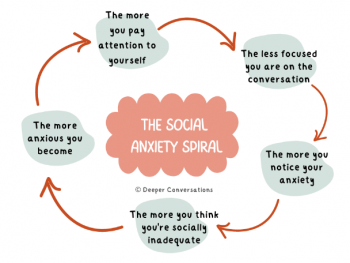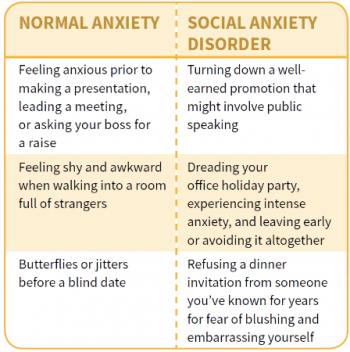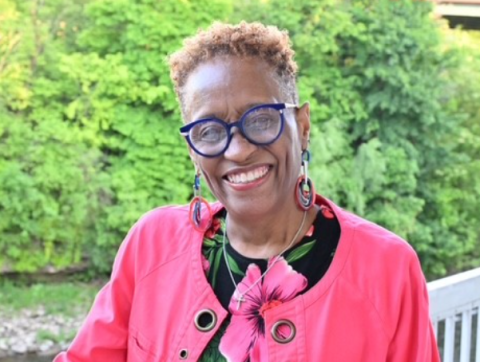The Social Anxiety Spiral: How to Escape it and Create Lasting Relationships
Every word. Every sentence. Everything I said was to be polished to perfection before I could even connect with someone else. Why do I put myself through such torture? Well, like the gaudy highway billboard that you never seem to escape, this thought of mine kept coming back again and again: "I just need to say the right thing, ask the right question... and they will like me…"
At the core of all this social anxiety was the shame of not being good enough. Not being successful enough. Not being smart enough. Not being perfect enough. Shame drove anxiety, which then drove perfectionism — a suffocating desire to control how I came across to others in every moment. I was holding myself to impossible standards. I knew it. But I couldn't help myself. And so, I kept trying to:
- Ask the most thought-provoking questions
- Share the most profound advice
- Spark conversations in the most creative way possible
Some days, I succeeded. On many other occasions though, when perfectionism wasn't possible — surprise! — I fell into the Social Anxiety Spiral.

As soon as any "imperfection" i.e. any anxiety-related thought/sensation appeared, my mind immediately latched onto it, in a vain attempt to monitor, control, reduce, or eliminate it.
And to make things worse, I would interpret the "imperfection" as a personal defect — that something is wrong with me. And they would find out and leave me.
As David M. Clark, an Oxford researcher, wrote:
"When individuals with social phobia believe they are in danger of negative evaluation by others, they shift their attention to detailed monitoring and observation of themselves. They then use the internal information made accessible by self-monitoring to infer how they appear to other people and what other people are thinking about them."
Now the big question is, have I gotten out of the Social Anxiety Spiral? Yes, to a large extent.
There are days when I am still stuck in the spiral. But the days are far and in between. Here are a few realizations that have helped: See the connection between anxiety and avoidance.
As I mentioned, what accelerated the Social Anxiety Spiral was my judgment of anxiety and the corresponding thoughts and sensations. When I saw my anxiety negatively, I avoided feeling it, which led to me spiraling downwards.
What I've since learned is that anxiety is normal — it's how the brain processes social and other threats. And more importantly, a key difference between normal anxiety and social anxiety disorder is avoidance:

I've been taking a course with Russ Harris, an ACT therapist, and he said something incredibly profound: "What creates anxiety disorders is not fear and anxiety, it's experiential avoidance — this ongoing attempt to avoid and get rid of anxiety."
When you notice your anxiety, accept its presence, and refocus on the conversation, as Larry Cohen, the cofounder of the National Social Anxiety Center (NSAC), has recommended.
Set a Lower Bar of Social Success
While I appreciate that my perfectionism can help me improve my social skills, I also recognize that I need to rein it in, so that it doesn't become a barrier to connecting with others!
In other words, I'm now a believer of adaptive perfectionism. As Suma Chand, a clinical psychologist, wrote,"Adaptive perfectionism has been defined as striving for reasonable and realistic standards. Socially this would mean that one follows the rules of conduct and adapts to different social situations in a flexible manner without being too concerned about minor slip-ups."
Here are two specific examples of realistic standards that have made the biggest difference for me.
Say "boring" things, ask "stupid" questions
One big belief that fuels perfectionism is perfect social performance = social success. Anything less than perfect entails social failure. Which is NOT true at all! Here's what I've realized after 10,000+ conversations with strangers. Small talk — which often consists of trite questions and answers — takes up the majority of our conversations. And its role is underrated, it starts or continues a conversation.
And that's what relationships are all about: nurturing a connection through conversation. You just have to show up, say something, and listen. You don't need to be the world's best conversationalist!
About Ian
Ian Chew is the founder of Deeper Conversations. Despite his social anxiety, he's had conversations with over 10,000 people, and he's been featured by top media outlets like CBC, Inc. Magazine, and TEDx.
- Share Your Story and Voice and Help #breakthestigma Around Mental Health
- Support ADAA's Mission - Every Gift Makes an Impact
- Join an ADAA Online Peer to Peer Support Community
- Find Your Therapist




















